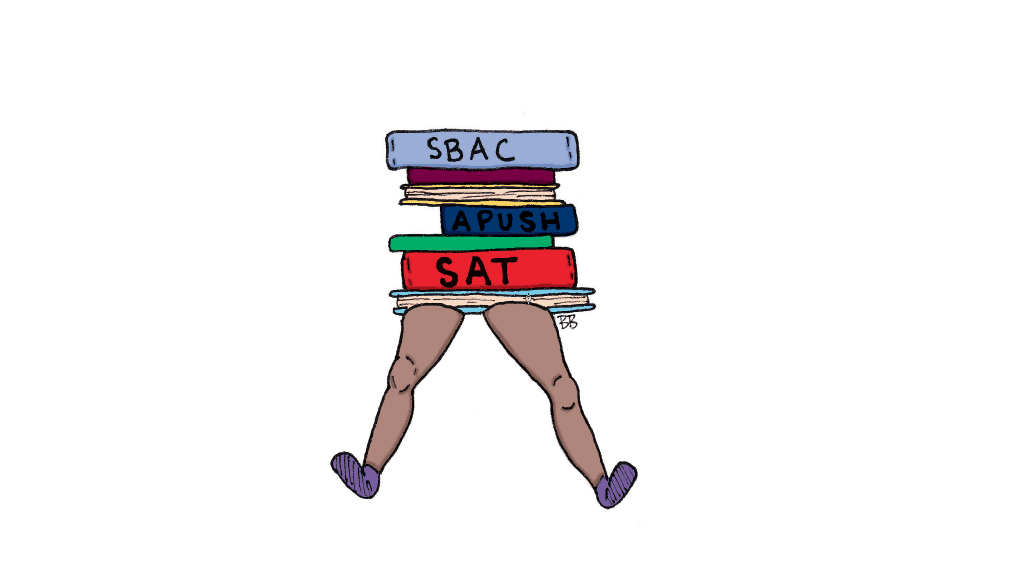AP testing is finally over for students across the country, ending months of stress and anxiety in two weeks. Roosevelt students are coming down from the high of being on the academic grind of AP studying. Many are no longer focusing on cramming in every little bit of knowledge about US history in their brains and instead attempting to keep grades up for the final quarter of the year. However, there seems to more and more standardized testing thrown at students every year. Although these tests can be a good benchmark of a student’s academic knowledge, I believe standardized tests are one of the worst ways to take account of a person’s overall knowledge and intelligence.
Students start taking standardized tests as young as third grade (the Smarter Balance is taken by most elementary students in Washington state). There are standardized tests as graduation requirements, AP tests for those wishing to get college credit or show knowledge on a subject, and the SAT and the ACT, which most colleges require scores for on applications; public school students countrywide take, on average, 112 mandatory tests throughout their school years, including pre-kindergarten.
The amount of standardized tests taken per year often increases as students reach high school. This year, I personally took 5 standardized tests: two AP tests, the PSAT, and the SAT and the ACT. Depending on my scores on the ACT, I may have to retake the test to broaden my chances for college acceptance. The amount of pressure my fellow students and I were under (many taking more of these tests than I was) to succeed seems to be ignored by those advocating standardized testing. Many students study intensely for these often redundant and homogenized exams. For many, these tests, which are framed to make it seem like they are the key to getting into good colleges, are not an accurate representation of their knowledge.
AP tests and the SAT/ACT are the prime example of this. If students are not confident test takers or are simply having an off day, they may get a low score. It often comes down to how well students can get through the tests’ format, not how well they know the subject. Basing intelligence and knowledge off a single day’s test is not only an inaccurate representation of many students’ knowledge, and it is unfair for those who are not competent test takers.
I cannot fathom why students’ achievements are based on tests. It often does not represent how knowledgeable students are in a subject and it often does not represent a school’s reaching skills. Washington state needs to rethink adding another standardized science test. I and many other students know that we are more than numbers on a score sheet.
Graphic By: Bethany Belina

Go Soph